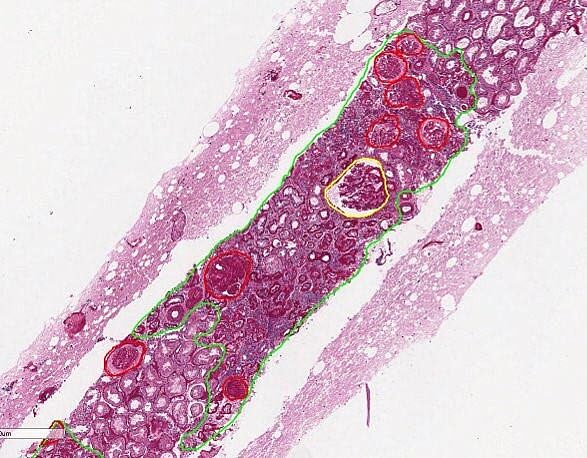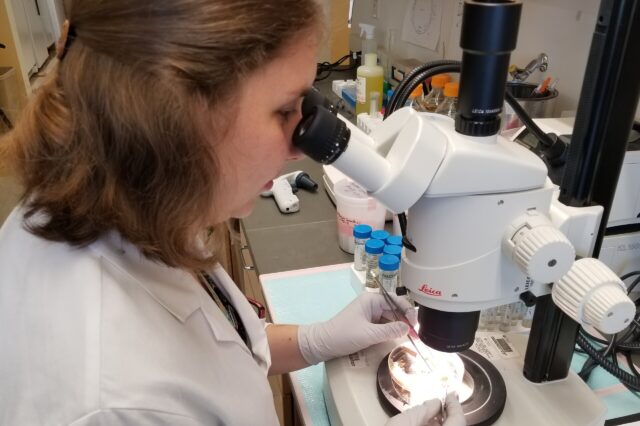Definition
Transplant rejection is a process in which a transplant recipient's immune system attacks the transplanted organ or tissue.
Alternative Names
Graft rejection; Tissue/organ rejection
Causes
Your body's immune system usually protects you from substances that may be harmful, such as germs, poisons, and sometimes, cancer cells.
These harmful substances have proteins called antigens coating their surfaces. As soon as these antigens enter the body, the immune system recognizes that they are not from that person's body and that they are "foreign," and attacks them.
When a person receives an organ from someone else during transplant surgery, that person's immune system may recognize that it is foreign. This is because the person's immune system detects that the antigens on the cells of the organ are different or not "matched." Mismatched organs, or organs that are not matched closely enough, can trigger a blood transfusion reaction or transplant rejection.
To help prevent this reaction, doctors type, or match both the organ donor and the person who is receiving the organ. The more similar the antigens are between the donor and recipient, the less likely that the organ will be rejected.
Tissue typing ensures that the organ or tissue is as similar as possible to the tissues of the recipient. The match is usually not perfect. No two people, except identical twins, have identical tissue antigens.
Doctors use medicines to suppress the recipient's immune system. The goal is to prevent the immune system from attacking the newly transplanted organ when the organ is not closely matched. If these medicines are not used, the body will almost always launch an immune response and destroy the foreign tissue.
There are some exceptions, though. Cornea transplants are rarely rejected because the cornea has no blood supply. Also, transplants from one identical twin to another are almost never rejected.
There are three types of rejection:
-
Hyperacute rejection occurs a few minutes after the transplant when the antigens are completely unmatched. The tissue must be removed right away so the recipient does not die. This type of rejection is seen when a recipient is given the wrong type of blood. For example, when a person is given type A blood when he or she is type B.
- Acute rejection may occur any time from the first week after the transplant to 3 months afterward. All recipients have some amount of acute rejection.
- Chronic rejection can take place over many years. The body's constant immune response against the new organ slowly damages the transplanted tissues or organ.
Symptoms
Symptoms may include:
- The organ's function may start to decrease
- General discomfort, uneasiness, or ill feeling
- Pain or swelling in the area of the organ (rare)
- Fever (rare)
- Flu-like symptoms, including chills, body aches, nausea, cough, and shortness of breath
The symptoms depend on the transplanted organ or tissue. For example, patients who reject a kidney may have less urine, and patients who reject a heart may have symptoms of heart failure.
Exams and Tests
The doctor will examine the area over and around the transplanted organ.
Signs that the organ is not working properly include:
- High blood sugar (pancreas transplant)
- Less urine released (kidney transplant)
- Shortness of breath and less ability to exercise (heart transplant or lung transplant)
- Yellow skin color and easy bleeding (liver transplant)
A biopsy of the transplanted organ can confirm that it is being rejected. A routine biopsy is often performed periodically to detect rejection early, before symptoms develop.
When organ rejection is suspected, one or more of the following tests may be done before the organ biopsy:
Treatment
The goal of treatment is to make sure the transplanted organ or tissue works properly, and to suppress your immune system response. Suppressing the immune response may prevent transplant rejection.
Medicines will likely be used to suppress the immune response. Dosage and choice of medicines depends on your condition. The dosage may be very high while the tissue is being rejected. After you no longer have signs of rejection, the dosage will likely be lowered.
Outlook (Prognosis)
Some organ and tissue transplants are more successful than others. If rejection begins, medicines that suppress the immune system may stop the rejection. Most people need to take these medicines for the rest of their life.
Even though medicines are used to suppress the immune system, organ transplants can still fail because of rejection.
Single episodes of acute rejection rarely lead to organ failure.
Chronic rejection is the leading cause of organ transplant failure. The organ slowly loses its function and symptoms start to appear. This type of rejection cannot be effectively treated with medicines. Some people may need another transplant.
Possible Complications
Health problems that may result from transplant or transplant rejection include:
- Certain cancers (in some people who take strong immune-suppressing medicines for a long time)
- Infections (because the person's immune system is suppressed by taking immune-suppressing medicines)
- Loss of function in the transplanted organ/tissue
- Side effects of medicines, which may be severe
When to Contact a Medical Professional
Contact your doctor if the transplanted organ or tissue does not seem to be working properly, or if other symptoms occur. Also, contact your doctor if you have side effects from medicines you are taking.
Prevention
ABO blood typing and HLA (tissue antigen) typing before a transplant helps ensure a close match.
You will likely need to take medicine to suppress your immune system for the rest of your life to prevent the tissue from being rejected.
Being careful about taking your post-transplant medicines and being closely watched by your doctor may help prevent rejection.
References
Abbas AK, Lichtman AH, Pillai S. Transplantation immunology. In: Abbas AK, Lichtman AH, Pillai S, eds. Cellular and Molecular Immunology. 10th ed. Philadelphia, PA: Elsevier; 2022:chap 17.
Badell IR, Adams AB, Larsen CP. Transplantation immunobiology and immunosuppression. In: Townsend CM Jr, Beauchamp RD, Evers BM, Mattox KL, eds. Sabiston Textbook of Surgery. 21st ed. Philadelphia, PA: Elsevier; 2022:chap 25.
Tse G, Marson L. Immunology of graft rejection. In: Forsythe JLR, ed. Transplantation: A Companion to Specialist Surgical Practice. 5th ed. Philadelphia, PA: Elsevier Saunders; 2014:chap 3.



